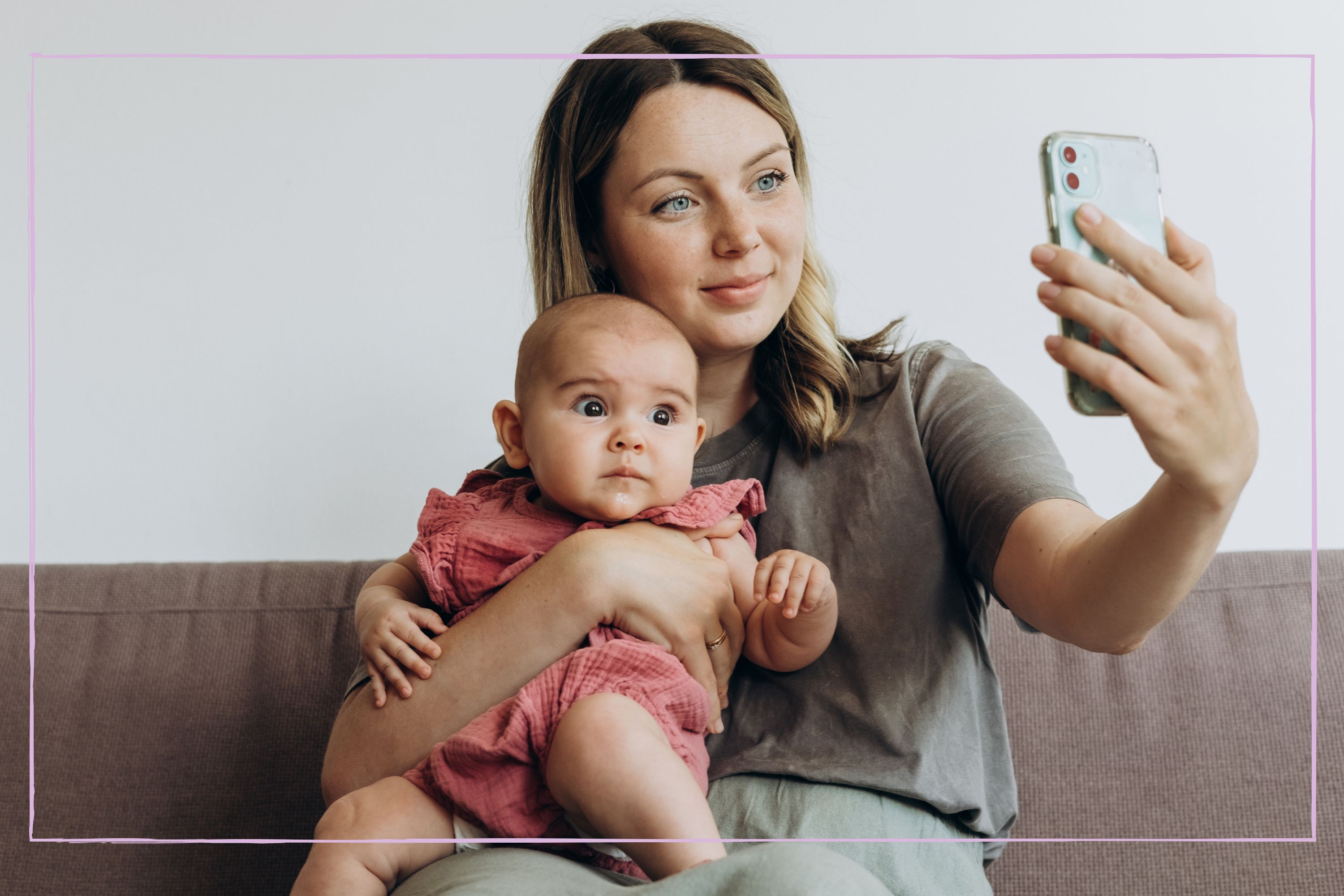
A new study has revealed that social media 'mumfluencers' are making new mums feel insecure about their reality of motherhood when compared to the glamourised ideal online - but is it really fair to blame the mums sharing perfect moments online?
We all know the detrimental impact social media can have on people's mental health, but that doesn't make it any easier to deal with. Both parents and kids need to learn how to stop 'doomscrolling' as, even without the need to keep kids safe online when it comes to cyberbullying, harmful content and online harassment, the comparison between your life and the seemingly perfect lives of those you see online can have a huge impact on how you view yourself and your day-to-day life.
While a lot of focus has been put on social media and the impact it can have on childhood mental health - which is still especially important as half of teens admit they’re addicted to social media - not much research has been done into the impact social media can have on our parenting, or at least our feeling towards how we parent.
It may be true that 73 per cent of millennials believe they are doing a better job of raising kids than their own parents, but that doesn't mean they're not also comparing themselves to other millennials and feeling that they're not doing as great a job as some others. Now, a new study has revealed, to little surprise, that social media is not helping new mums feel good about the realities of parenting. In fact data, published in the Journal of Broadcasting & Electronic Media Research found that 'mumfluencers' who share their parenting life on social media increase anxiety and envy among some new mums and even lead them to question their own parenting skills, as well as their entire lives as a mum, because of it.
It's understandable. Looking at the profile of a seemingly easy breezy mum, scrolling through the pictures and videos that show beautifully happy children, an impossibly clean house, and her and her loved-up partner in photo-ready hair and makeup, it can all make you feel a bit...lacking. But it might not be entirely their fault that you're feeling so envious.
Looking deeper into the data, the researchers found that the blame could not be placed only on the mumfluencers sharing perfect moments online. Lead researcher Ciera Kirkpatrick highlighted that there are certain traits in certain new mums that make them more 'inclined to compare than others,' and therefore more likely to be negatively affected by innocent posts shared on social media by other mums.
The main trait that leaves new mums feeling down about mumfluencer posts is a tendency to compare themselves to other people, known scientifically as them having a higher social comparison orientation. If you're more likely to compare your experience of motherhood to that of someone posting only the perfect snippets, the research suggests you will likely become less confident about your own parenting abilities after internalising these posts.
"We all have this tendency to compare, but some of us are more inclined to compare than others,” Kirkpatrick told Nebraska Today. “If we know how these posts are affecting mothers and that they are more detrimental to certain mums, then that helps us, from a strategic health communications or health professional standpoint.”
There is still more research to be done and theories to pose. One such theory, which proved to be wrong, was that mothers with lower self-esteem would be more negatively affected by the social media posts, but this wasn't the case. In fact, there was no differentiation between those with high and low self-esteem in the study.
It just goes to prove how little we know about the detrimental impact social media can have on us all. And as it continues to develop and new trends appear, more issues will only continue to raise their heads.
One recent online trend is particularly worrying for the expert. "I have lots of examples of postpartum mums showing off their ‘must-haves’ - a $1,000 bassinet or a $300 bottle washer, these really expensive things - and that likely creates pressure on mums," Kirkpatrick said. "Or the ‘typical day’ videos that show a postpartum mum meal planning or cleaning their house every night. That just feeds into the pressure.”
But there's also hope. "I think it was simpler, with a photo, to capture exactly what you want and leave out everything else,” Kirkpatrick said. “It’s a little bit harder to make sure everything’s perfect in a video, and I’ve seen more of a push for showing realistic portrayals of motherhood as I’ve been collecting these types of posts for the next study.”
It's difficult to be a mum - let's not lie! As well as the fact that working mothers earned 43 per cent less than fathers in 2023, single mothers also have to deal with being single-shamed as a parent. But, while mums can often feel 'not good enough,' psychotherapist and mum-of-three Anna Mathur reassures that 'maybe it's not you, maybe the standards are out of reach?'.







